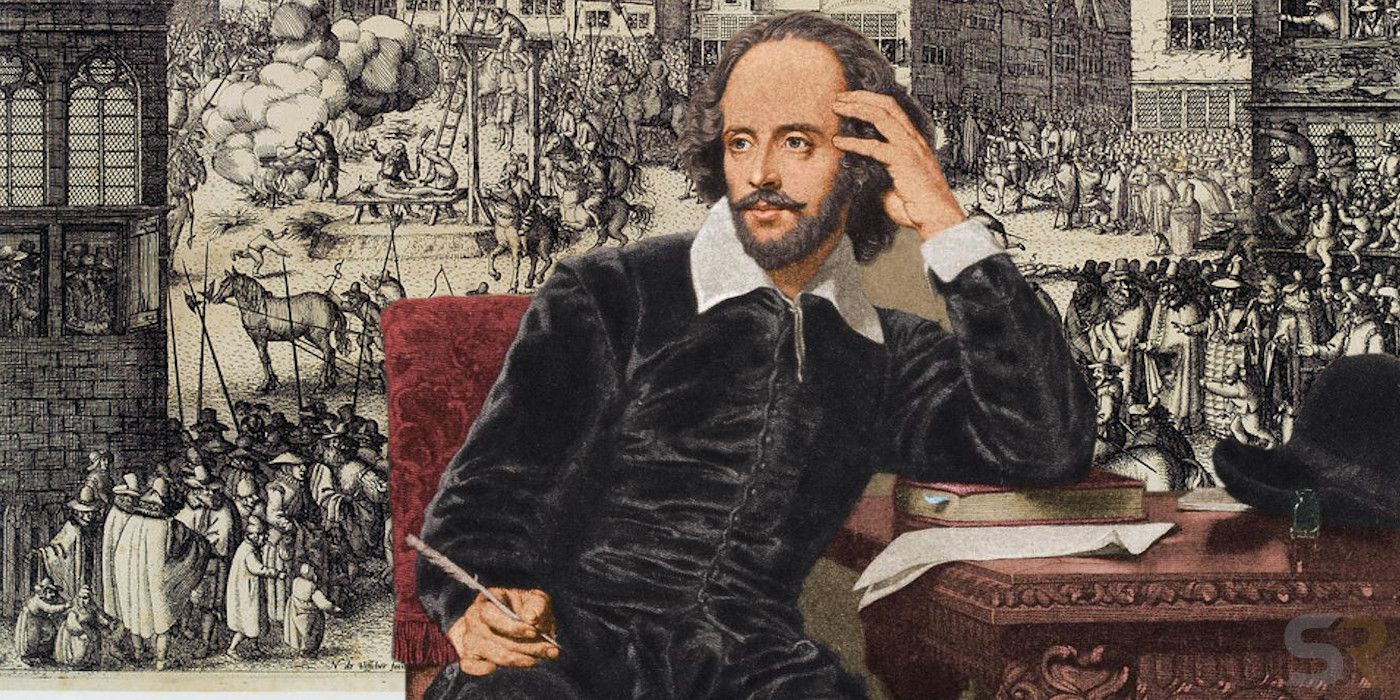COVID-19, also known as the novel coronavirus, is having drastic effects around the globe — and some people are drawing links between self-isolation and the works of Shakespeare, especially King Lear. Efforts to keep people safe, including social distancing and quarantining, has affected the entertainment industry: films and TV shows are halting production, Broadway has shut down in response to the pandemic, and the domestic box office is experiencing a 2o-year low.
Alongside the coronavirus, conversations on social media, as well as articles in The Atlantic and The New York Times, have considered how the plague affected Shakespeare's life and works. It's clear that Shakespeare's plays have influenced and inspired countless writers through the centuries. But did Shakespeare really write King Lear while being quarantined (as said by Roseanne Cash on Twitter)? Did plague affect how he wrote or what he wrote about?
Dr. Shapiro notes in his book The Year of Lear that, in or around 1606, Shakespeare likely wrote King Lear, along with Macbeth, Antony and Cleopatra, Timon of Athens, and Pericles in quick succession — perhaps even within the same calendar year. Like 1596 and 1603, 1606 was a time of plague. While this is an impressive feat, Shakespeare typically wrote multiple plays in any given year. There is no reason to believe that his productivity was enhanced by plague or quarantine.
Shakespeare's life, like the lives of many people in England at the turn of the seventeenth-century, was shaped by plague. While there is no evidence of Shakespeare specifically being quarantined, the plagues closed the theaters in London repeatedly. During this time, Shakespeare opted to write poetry, as well as plays that would be performed when the theaters re-opened. As a result, many of Shakespeare's most famous works may have been written while plagues were shutting down the city of London. As Professor Jonathan Bate writes in his biography of Shakespeare, Soul of the Age:
Plague was the single most powerful force shaping [Shakespeare's] life and those of his contemporaries.
What's known is that William Shakespeare wrote plays in England during the reign of Queen Elizabeth I and King James I. Despite films like Anonymous that propose that Shakespeare's plays were written by someone else, the consensus among scholars is that Shakespeare wrote the plays that are attributed to him. We also know that this was a time when England was ravaged by plague that closed the theaters in London. Shakespeare was born in 1564, one year after a severely bad plague. There were additional plagues in 1578-1579 and 1582 before he began writing professionally. Based on parish records, Shakespeare lost multiple siblings at relatively early ages, likely because of plague or disease. Shakespeare's personal and professional life continued to be affected by plague. During a plague that closed the theaters in 1593, Shakespeare is believed to have written his poem Venus and Adonis. Because the theaters were closed, Shakespeare wrote poetry to gain patronage and financial support.
Additionally, Shakespeare's son, Hamnet, died at ten or eleven, in 1596. Kenneth Branagh's film All is True speculates that Hamnet died from the plague. Scholars, including Professor Stephen Greenblatt, have considered how Hamnet's death had a profound impact on Shakespeare's writing. Soon after Hamnet's death, Shakespeare wrote Hamlet, one of his most famous works that meditates on death, loss, fathers and sons, and the afterlife. Ultimately, while there are many unknowns about Shakespeare's life, his writing survived the plague. From Romeo and Juliet to King Lear, the many references to pestilence and disease throughout his plays demonstrate the profound impact that living through and around plague had on Shakespeare's life and works.


